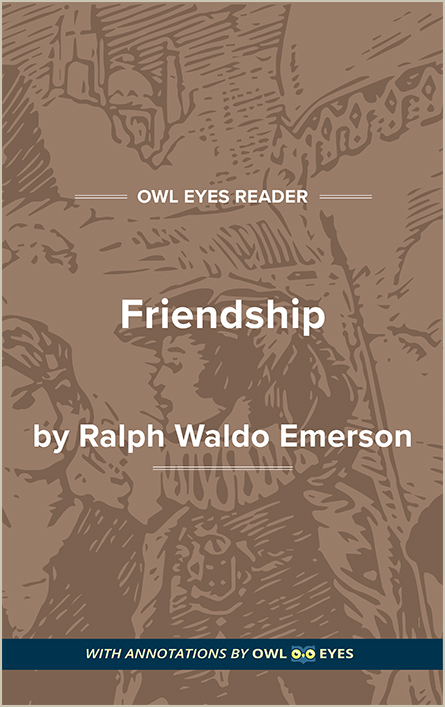Analysis Pages
Oxymoron in Friendship
Oxymoronic Diction: Through various oxymoronic expressions, such as “delicious torment,” “beautiful enemy,” and “sweet poison,” Emerson encapsulates the paradoxical nature of friendship. These phrases demonstrates the dual sensation of pleasure and pain one may experience within a friendship as well as the importance of maintaining a sense of closeness and distance with another person. In Emerson’s letter to a hypothetical friend, he signs off “Thine ever, or never.” Friendship, according to Emerson, is always a process of dichotomy—the feeling of being, in other words, yours or not yours.
Oxymoron Examples in Friendship:
"Friendship"
🔒"beautiful enemy..." See in text ("Friendship")
"delicious torment..." See in text ("Friendship")
""crush the sweet poison of misused wine"..." See in text ("Friendship")

